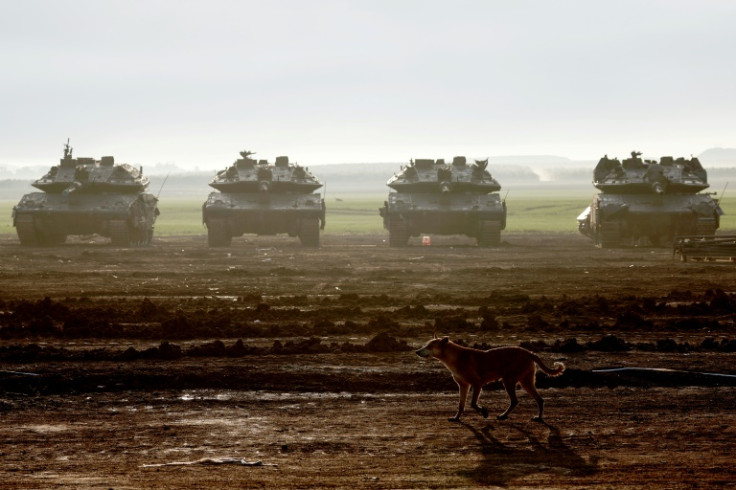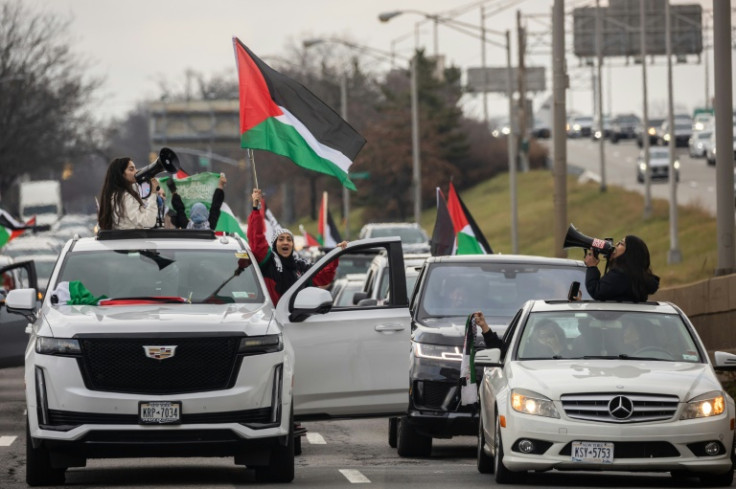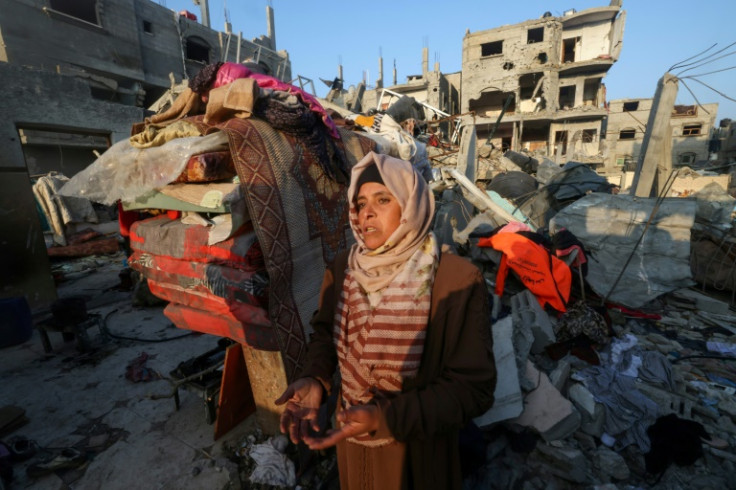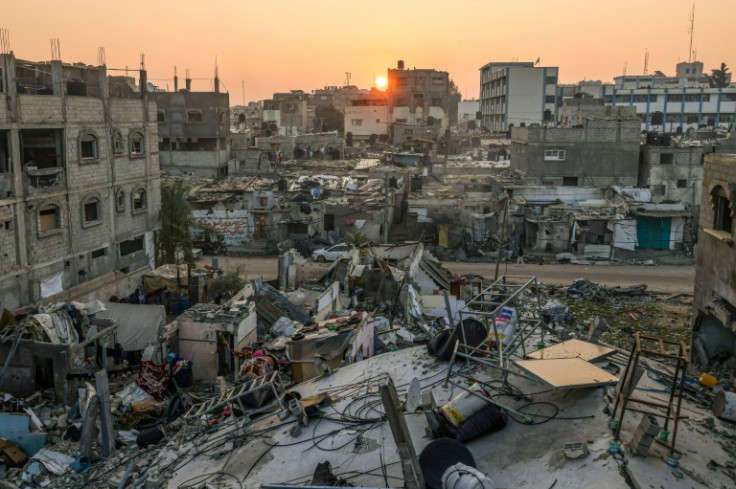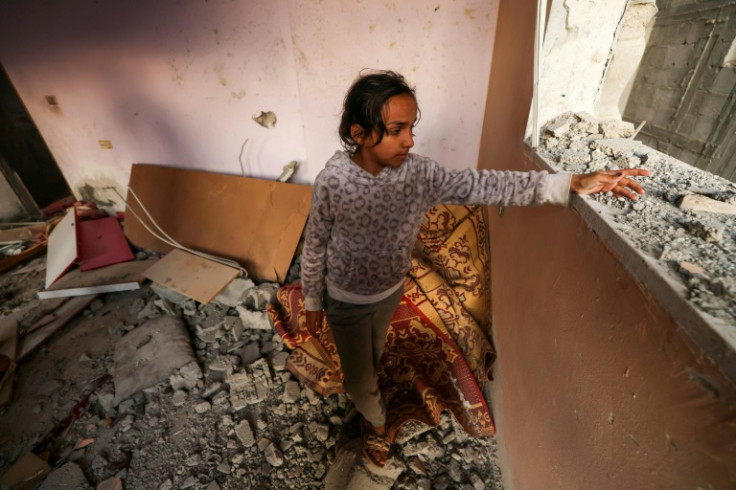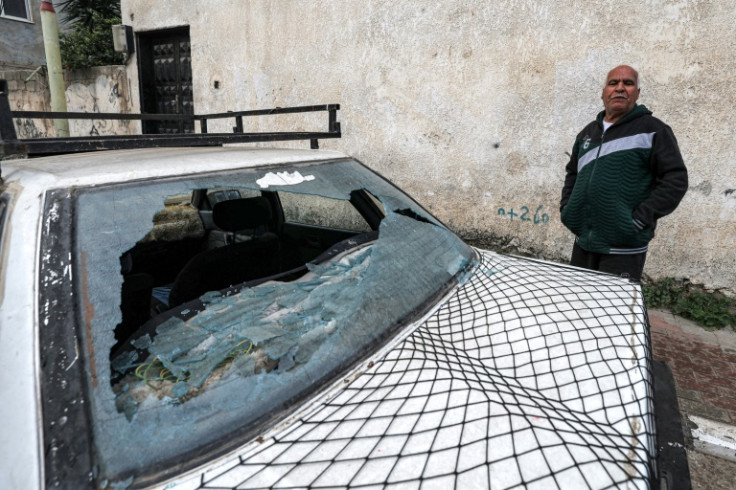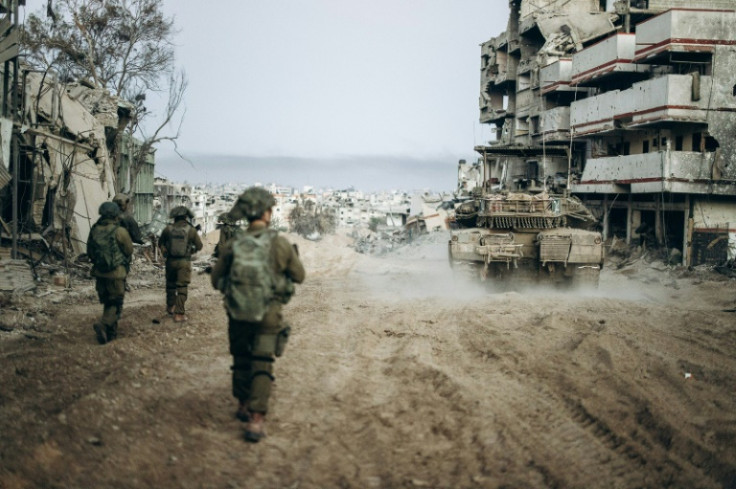
Israeli forces battled Hamas militants amid the ruins of the heavily-bombed Gaza Strip on Tuesday as the war raging for almost three months piled new miseries on Palestinians in the besieged territory.
The Israeli army said soldiers had killed "dozens of terrorists", including some carrying explosives, raided a weapons storage compound in the southern city of Khan Yunis, and discovered long-range rocket launchers.
In Gaza, where UN agencies have voiced alarm over a spiralling humanitarian crisis, 2.4 million Palestinians remained under siege and bombardment, most of them displaced and many huddling in shelters and tents amid dire food shortages.
"Living conditions... are just hopeless," said 43-year-old Mostafa Shennar, who fled Gaza City, now a largely devastated urban combat zone, and has been living in the crowded southern border town of Rafah.
Israel has vowed to destroy Hamas and warned the war raging since the October 7 attack may continue "throughout 2024", as efforts toward a new ceasefire have so far yielded no results.
The war broke out when Gaza's rulers Hamas launched an attack on Israel on October 7 which resulted in around 1,140 deaths in Israel, most of them civilians, according to an AFP tally based on official figures.
The Islamist militant group also took around 250 hostages, more than half of whom remain in captivity, according to Israeli figures. Their families fear for their lives amid the fighting and bombardment.
Israel, after suffering the worst attack in its history, has launched a withering offensive that has killed at least 22,185 people, mostly women and children, according to the territory's health ministry.
The military said Tuesday it was investigating a soldier suspected of shooting dead a Palestinian captured in the Gaza Strip.
"The terrorist was handed over to the supervision of a soldier, who, under suspicion, allegedly shot him, resulting in his death," the army said of the Sunday incident.
Throughout its bloodiest ever Gaza war, Israel has had the backing of its keystone ally the United States, which has however also urged greater restraint to spare civilian lives.
Prime Minister Benjamin Netanyahu's government, which includes far-right and hardline nationalist groups, has said repeatedly it will keep fighting until Hamas is destroyed.
As 2024 started, a long-running political dispute flared again after setting off mass street protests last year against what is considered the most right-wing government in Israeli history.
The Supreme Court overruled a key plank of a judicial reform package that Netanyahu has defended as rebalancing the powers of politicians and judges, but which protesters have labelled a threat to Israel's liberal democracy.
The setback on the so-called reasonableness clause dealt a political blow to the wartime government already under fire over the intelligence failure leading up to October 7.
The army said Monday it would soon rotate out some of the more than 300,000 reservists called up after October 7, in part to prepare them for many more months of war ahead.
It said reservists from two brigades, which have some 4,000 troops each, will start returning home this week.
Defence Minister Yoav Gallant also said some residents "will soon be able to return home" to towns and villages near Gaza that were attacked by Hamas and then evacuated.
The government has so far refused to specify its plans for post-war Gaza and how it will be rebuilt and governed.
US news outlet Axios, citing unnamed Israeli sources, said Hamas had presented Israel with a proposal on Sunday for a new hostage exchange deal via Qatari and Egyptian mediators.
The official told Axios the proposal had been deemed unacceptable by the Israeli war cabinet, but suggested progress could be made towards a more amenable plan in future.
Violence has also surged in the occupied West Bank, where at least 321 Palestinians have been killed by Israeli troops and settlers since the Gaza war began, according to the Ramallah-based Palestinian health ministry.
In the latest clash Tuesday, Israeli forces killed four Palestinians, the ministry said. The army said it had shot dead four militants in a "counter-terrorism" operation that also left one soldier wounded.
Separately, troops "neutralised" a Palestinian militant who fired at them in the town of Qalqilya, the army said without elaborating.
Recent months have also seen almost daily exchanges of fire on the border with Lebanon between the army and Iran-backed groups, particularly Hezbollah.
Israel has also hit targets in Syria and launched strikes near Damascus overnight causing "some material damage", state news agency SANA reported.
The Britain-based Syrian Observatory for Human Rights said air strikes had hit a Syrian artillery company where "members of Lebanon's Hezbollah are also present".
Yemen's Iran-backed Huthi rebels have also launched attacks at Israel and at cargo ships in the Red Sea, where the US military has assembled a multinational taskforce to protect the vital shipping lane.
The Pentagon said Monday it would soon withdraw the aircraft carrier USS Gerald R. Ford which has been deployed near Lebanon since shortly after the outbreak of the war.
But it vowed to "retain extensive capability" in the Mediterranean and across the Middle East, including the carrier USS Dwight D. Eisenhower, "to deter any state or non-state actor from escalating this crisis beyond Gaza".
